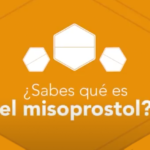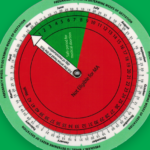

Today the U.S. Supreme Court rejected the anti-abortion case that sought to reverse the FDA’s approval of the medication abortion drug mifepristone—based on false claims that the drug is unsafe. The ruling ensures that mifepristone will remain available.

Legalizing abortion does not guarantee that those who need this vital service can get it. For many people who want to end a pregnancy, their path is blocked by long travel times, stigma, threat of violence, or expensive fees for surgical methods. Abortion with pills allows them the freedom to take care of this acute need in their home or another secure space. That’s why the fight for self-managed abortion is a crucial aspect of reproductive justice.

In Nigeria, where abortion is highly restricted and access to services is limited, more and more people are self-managing their abortions after going to patent medicine vendors (PMVs) for abortion information and pills.

In 2018, Ipas Central America and Mexico (Ipas CAM) created an informational video in Spanish on how women can safely self-manage an abortion using misoprostol, a safe and effective drug readily available in most pharmacies in Mexico without a prescription. Staff started using the video to train Mexican pharmacy workers so they could advise and support women seeking abortion pills.


In India, an estimated 15.6 million abortions occur each year—and out of those, about 12 million (73%) are medical abortions (or abortion with pills) that women experience in places other than health facilities.

Can women accurately self-assess their eligibility for medical abortion? New research from Nepal indicates that, with some simple guidance, they can—a finding with broad implications for the growing question of how much medical oversight of the medical abortion process is needed.

Medical abortion gives women the option to take pills to have an abortion instead of having a surgical procedure. A new article by researchers from Ipas and Advancing New Standards in Reproductive Health (ANSIRH) at the University of California, San Francisco (UCSF), lays out a regulatory pathway for medical abortion to be made available without a prescription.

Aiming to inform and inspire organizations and advocates around the world, Mexican organization Las Libres has produced a short documentary film detailing its successful “accompaniment model” that pairs women seeking medical abortion with women committed to accompanying others on a volunteer basis throughout the process of a safe abortion.

